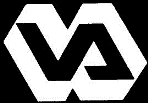United States Department of Veterans Affairs

United States Department of Veterans Affairs: Publications
Date of this Version
9-2005
Document Type
Article
Citation
Biological Psychiatry, Volume 58, Issue 5, 1 September 2005, Pages 347-354; doi:10.1016/j.biopsych.2005.05.025
Abstract
Background: Vagus nerve stimulation (VNS) alters both concentrations of neurotransmitters or their metabolites and functional activity of central nervous system regions dysregulated in mood disorders. An open trial has suggested efficacy.
Methods: This 10-week, acute, randomized, controlled, masked trial compared adjunctive VNS with sham treatment in 235 outpatients with nonpsychotic major depressive disorder (n = 210) or nonpsychotic, depressed phase, bipolar disorder (n = 25). In the current episode, participants had not responded adequately to between two and six research-qualified medication trials. A two-week, single-blind recovery period (no stimulation) and then 10 weeks of masked active or sham VNS followed implantation. Medications were kept stable. Primary efficacy outcome among 222 evaluable participants was based on response rates (≥ 50% reduction from baseline on the 24-item Hamilton Rating Scale for Depression [HRSD24]).
Results: At 10-weeks, HRSD24 response rates were 15.2% for the active (n = 112) and 10.0% for the sham (n = 110) groups (p = .251, last observation carried forward [LOCF]). Response rates with a secondary outcome, the Inventory of Depressive Symptomatology – Self-Report (IDS-SR30), were 17.0% (active) and 7.3% (sham) (p = .032, LOCF). VNS was well tolerated; 1% (3/235) left the study because of adverse events.
Conclusions: This study did not yield definitive evidence of short-term efficacy for adjunctive VNS in treatment-resistant depression.

